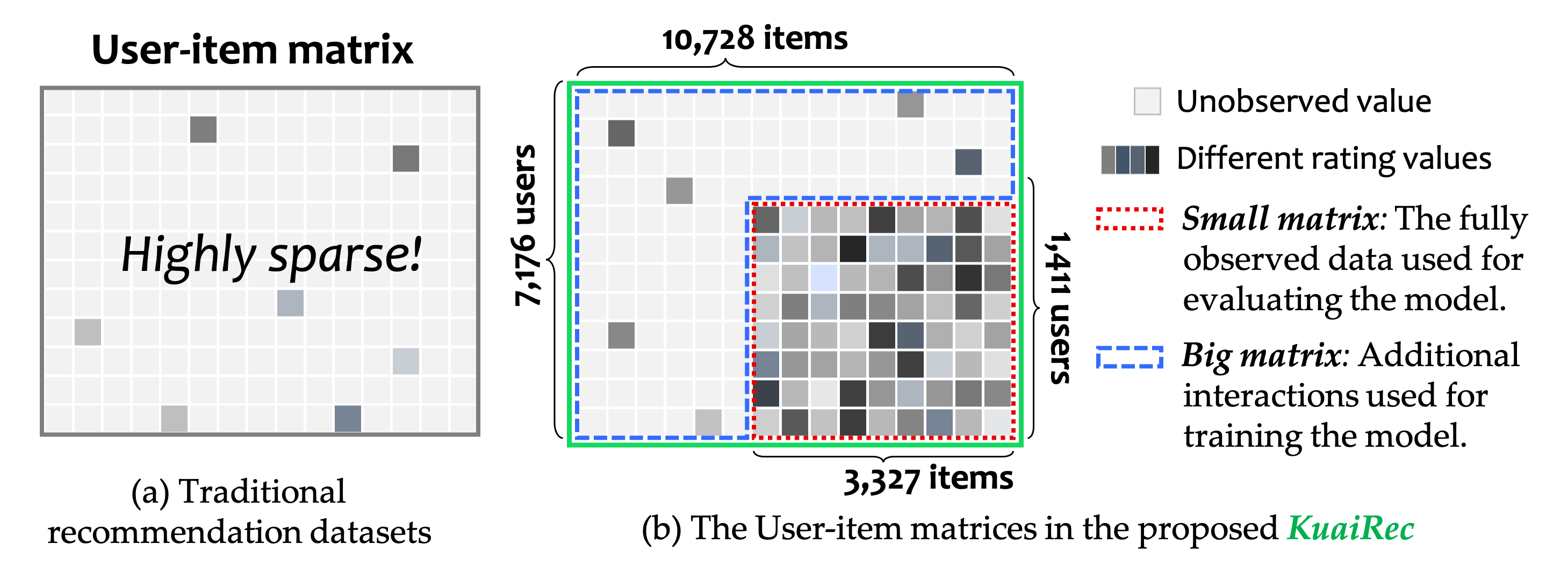KuaiRec: A Fully-observed Dataset and Insights for Evaluating Recommender Systems
The progress of recommender systems is hampered mainly by evaluation as it requires real-time interactions between humans and systems, which is too laborious and expensive. This issue is usually approached by utilizing the interaction history to conduct offline evaluation. However, existing datasets of user-item interactions are partially observed, leaving it unclear how and to what extent the missing interactions will influence the evaluation. To answer this question, we collect a fully-observed dataset from Kuaishou's online environment, where almost all 1,411 users have been exposed to all 3,327 items. To the best of our knowledge, this is the first real-world fully-observed data with millions of user-item interactions. With this unique dataset, we conduct a preliminary analysis of how the two factors - data density and exposure bias - affect the evaluation results of multi-round conversational recommendation. Our main discoveries are that the performance ranking of different methods varies with the two factors, and this effect can only be alleviated in certain cases by estimating missing interactions for user simulation. This demonstrates the necessity of the fully-observed dataset. We release the dataset and the pipeline implementation for evaluation at https://kuairec.com
PDF AbstractDatasets
Introduced in the Paper:
 KuaiRec
KuaiRec



